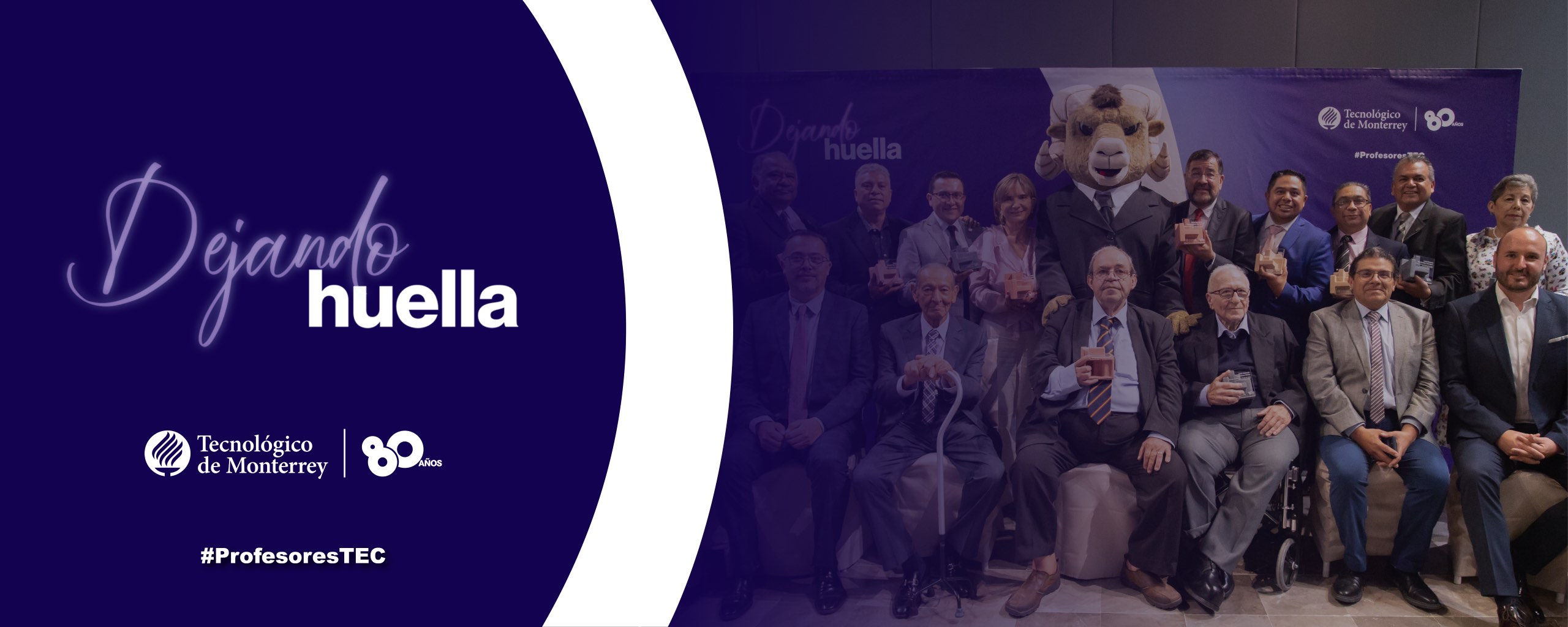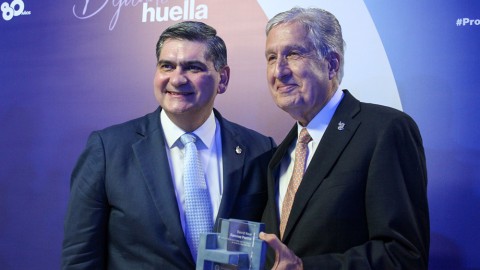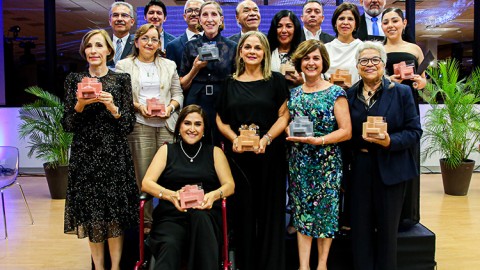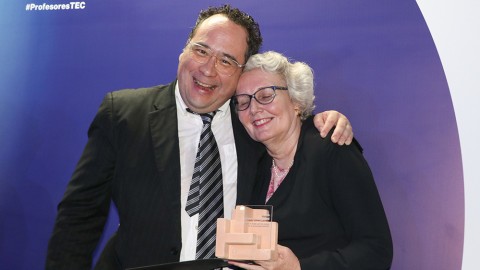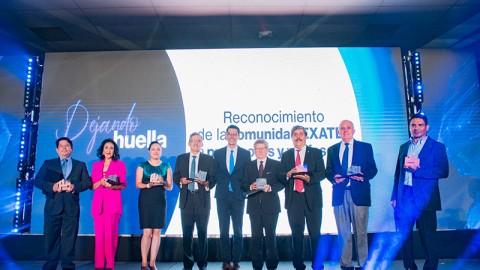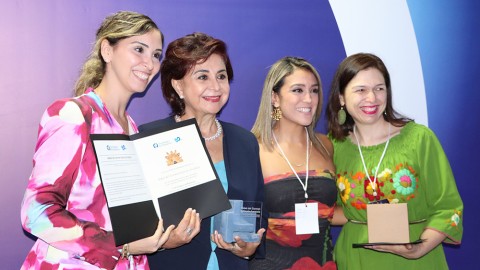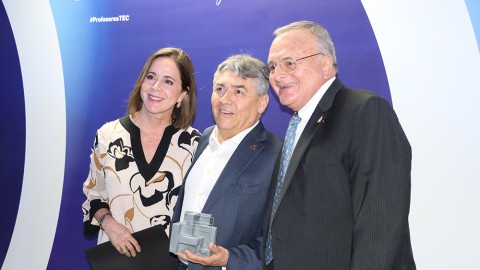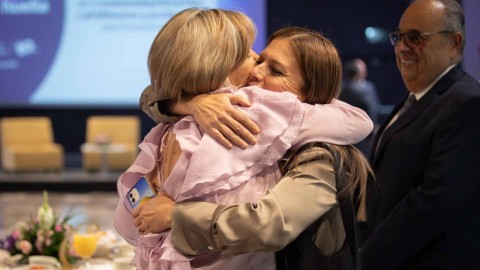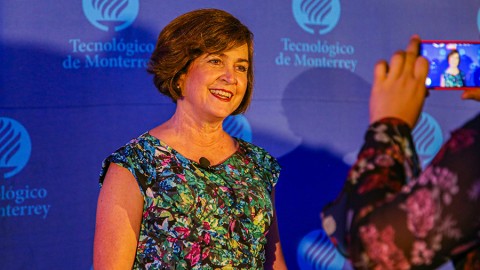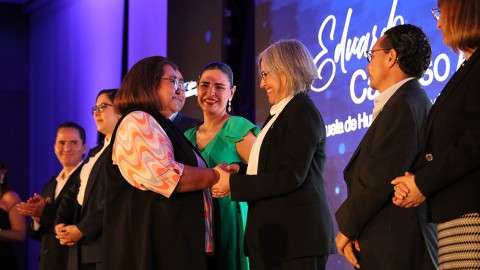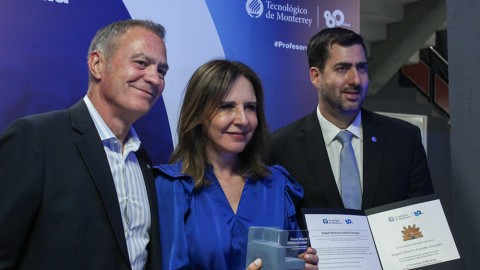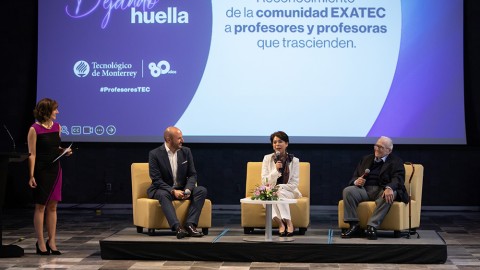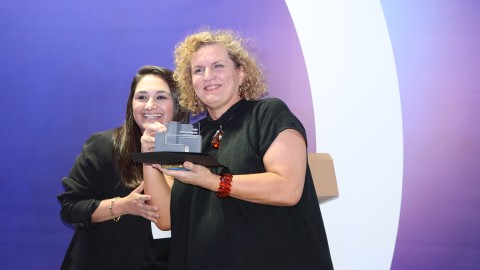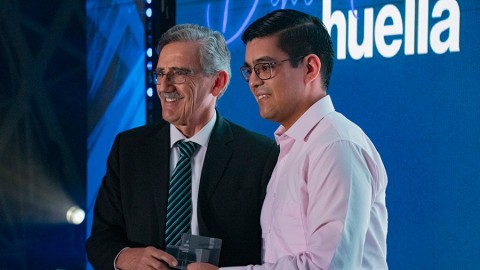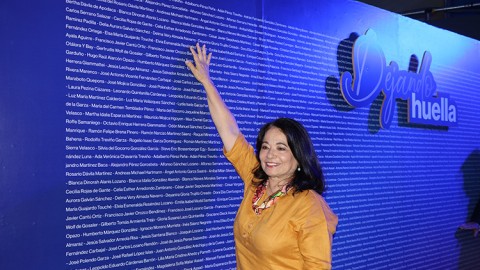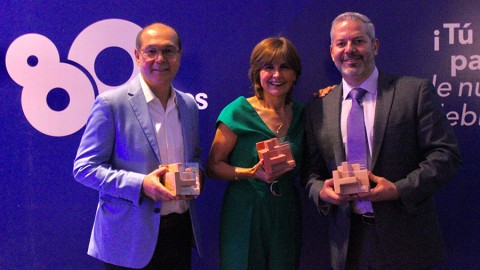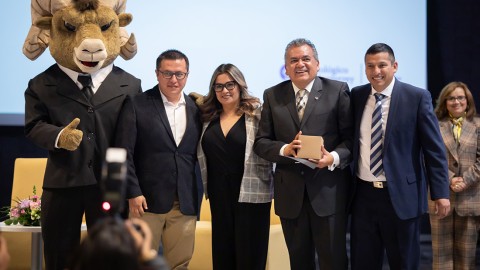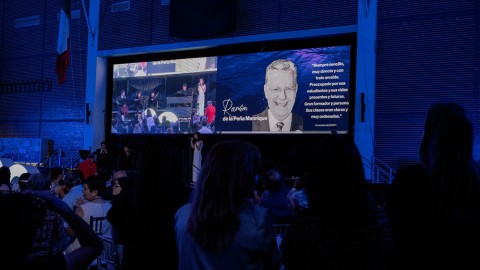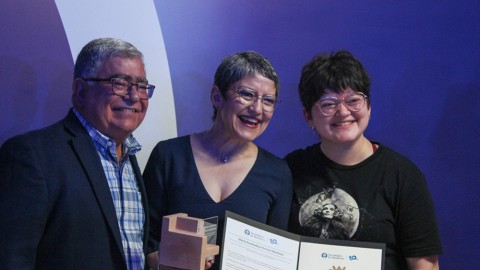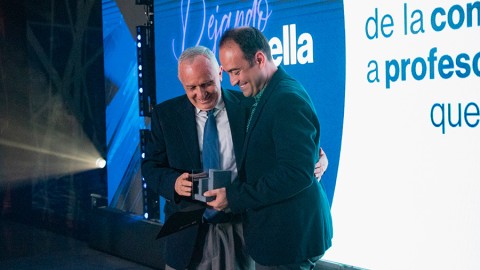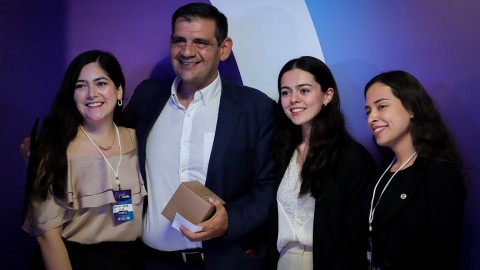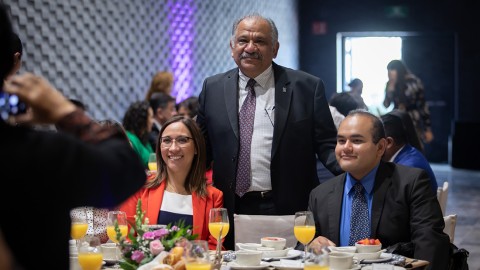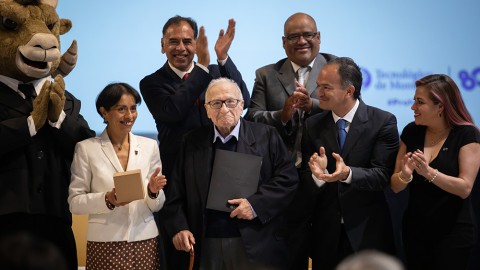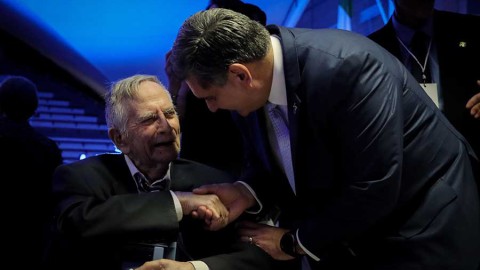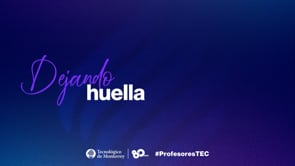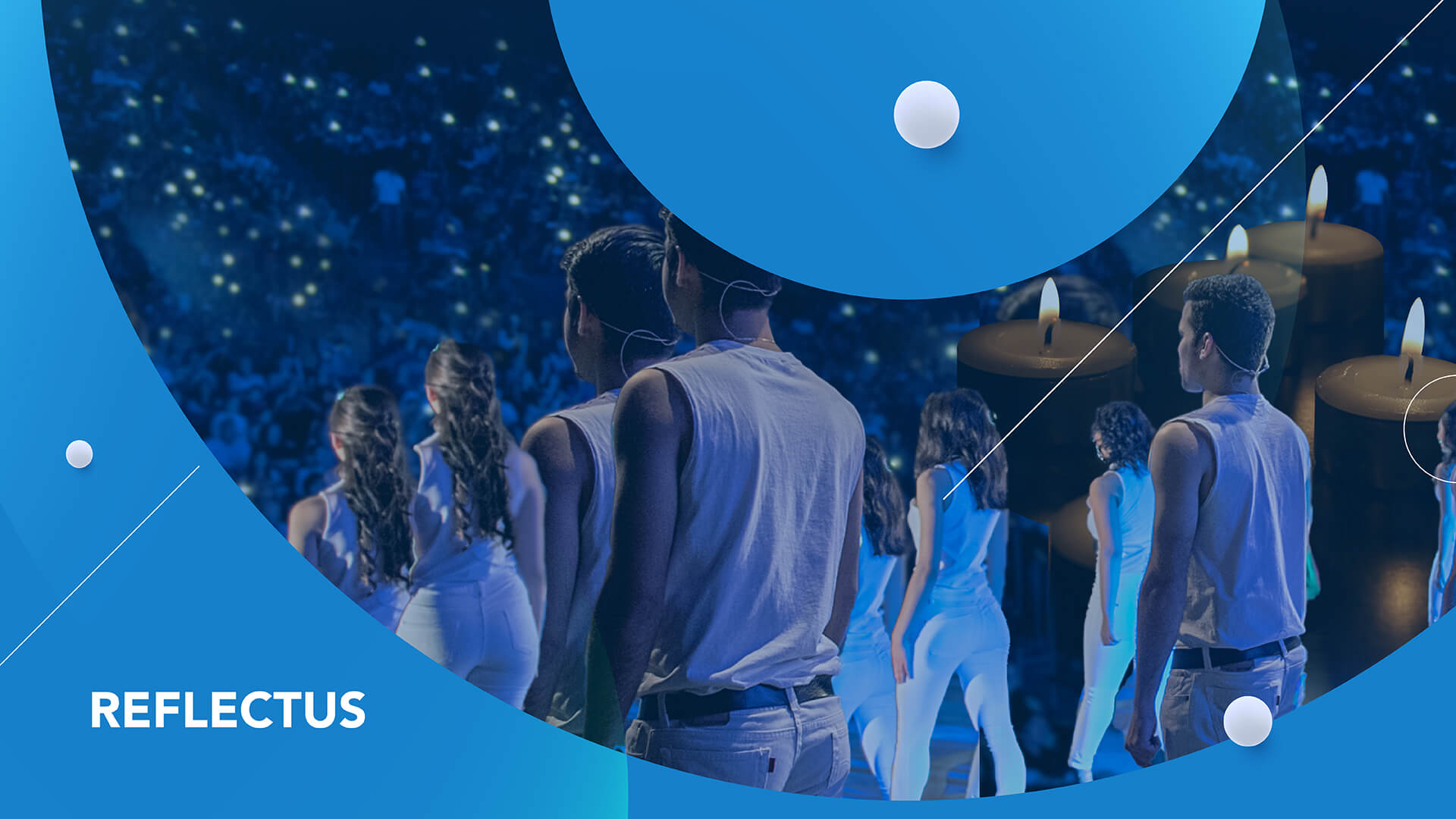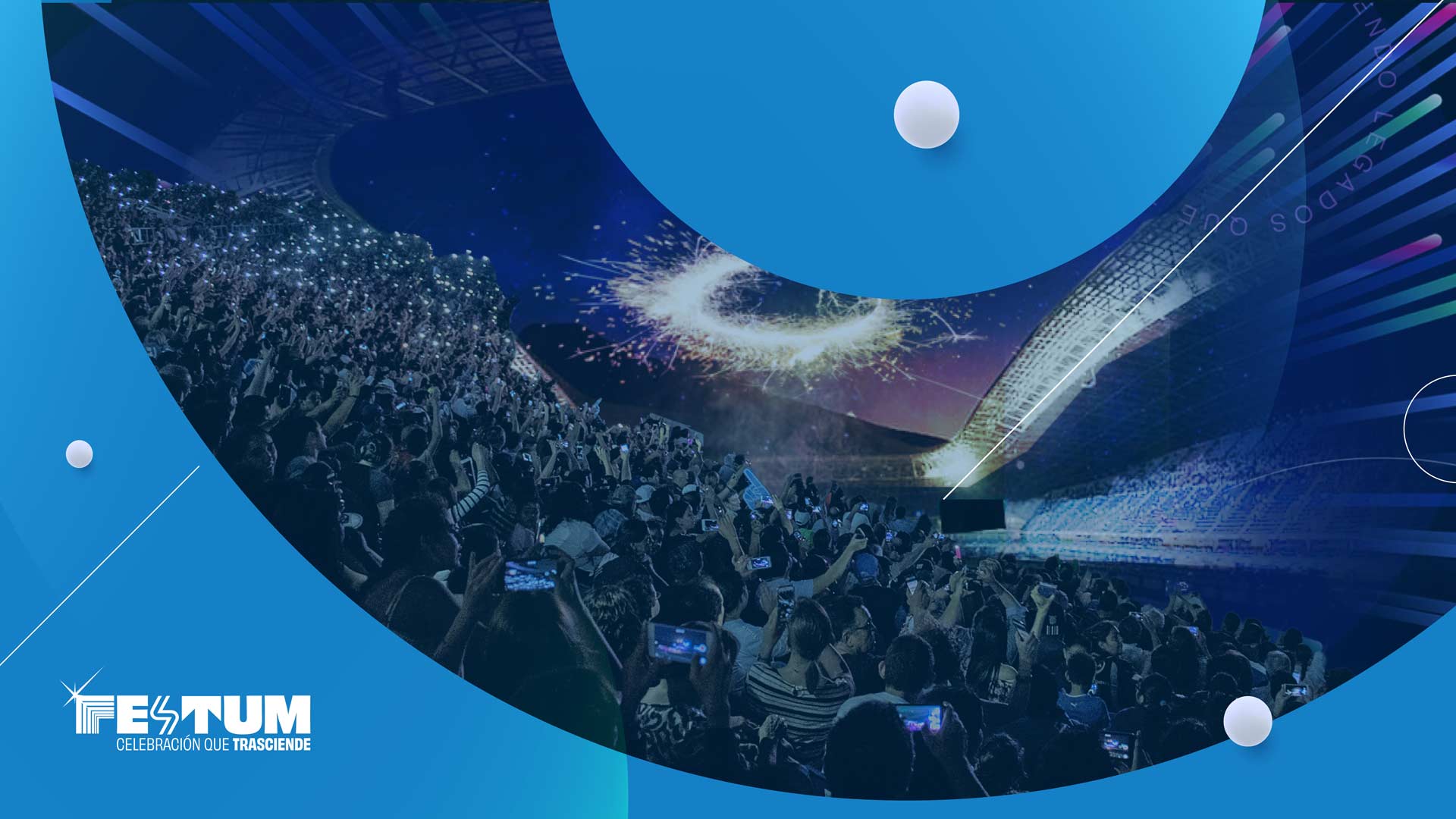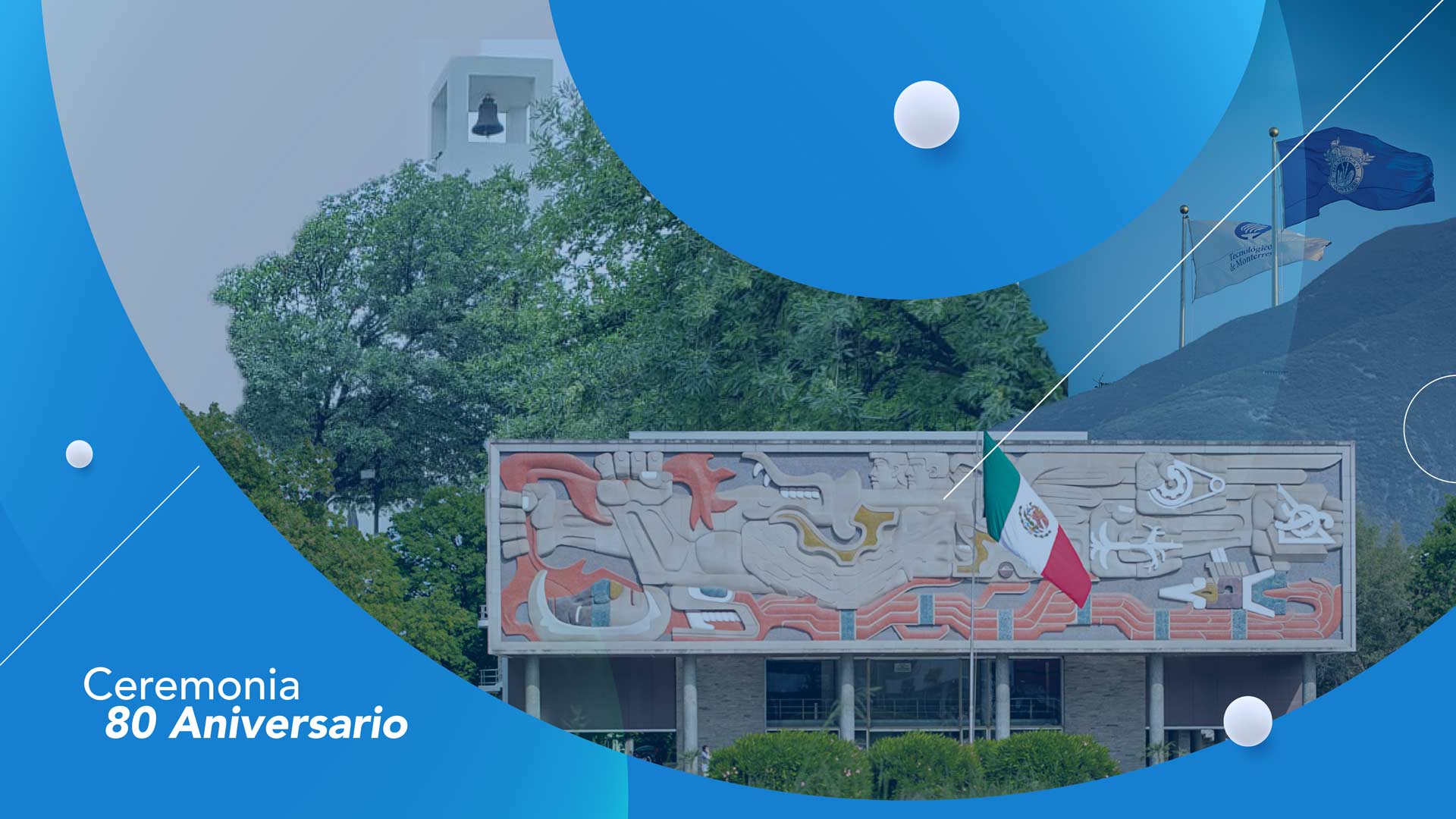| Nombre completo |
Área académica |
| Ada Verónica Chavarría Treviño |
|
| Adalberto Pérez Peña |
|
| Adrián Fernando González Zambrano |
Negocios, Gestión y Liderazgo |
| Adrián Wong Boren |
Contabilidad y Finanzas |
| Adriana Maricela Carranza Garza |
Mercadotecnía |
| Adryana Guadiana González |
Contabilidad y Finanzas |
| Agata Michalska Haduch |
Negocios, Gestión y Liderazgo |
| Agustín Enrique Landa Vertiz |
Arquitectura e Ingeniería Civil |
| Aideé del Carmen García Arzabala |
Derecho |
| Alberto Abelardo Hernández Luna |
Ingeniería Industrial |
| Alberto Bustani Adem |
Mecánica e Ingeniería Química |
| Alberto Francisco Rebolledo Ponce |
Derecho |
| Alberto García Mendoza |
Mecánica e Ingeniería Química |
| Alberto Soriano |
Computación, Electrónica y Mecatrónica |
| Alda Rosa Roxana Cárdenas Esparza Farías |
Ingeniería Industrial |
| Aldo Serafín Torres Salinas |
Contabilidad y Finanzas |
| Alejandra González Ávila |
Computación, Electrónica y Mecatrónica |
| Alejandro Ibarra Yunez |
Economía |
| Alejandro Juan Alvarez Guerra |
Mecánica e Ingeniería Química |
| Alejandro Martínez Baca |
Arte y Diseño |
| Alejandro Pérez Gorostieta |
Negocios, Gestión y Liderazgo |
| Alfonso Sánchez Lozano |
Mecánica e Ingeniería Química |
| Alfonso Serrano Heredia |
Ciencias exactas |
| Alfredo Antonio González González |
|
| Alfredo Brunell Meneses |
Mercadotecnía |
| Alfredo Germán Mancera Gutiérrez |
Arte y Diseño |
| Alfredo Peña Marín |
|
| Álvaro Barbosa Quintana |
Salud |
| Américo Ocañas Cárdenas |
Negocios, Gestión y Liderazgo |
| Ana Criscelda Esparza Zertuche |
|
| Ana Elena Corzo Ricalde |
|
| Ana Isabel Ramos Elizondo |
|
| Ana Lilia Garza Castañón |
|
| Ana María de Guadalupe Alvarado Larios |
Derecho |
| Ana María de la Cruz Maldonado |
Arquitectura e Ingeniería Civil |
| Ana Maria Sarmiento Moncada |
Ingeniería Industrial |
| Ana Mariela Quiroga Treviño |
Negocios, Gestión y Liderazgo |
| Ana Portnoy Grumberg |
|
| Anabella del Rosario Dávila Martínez |
Negocios, Gestión y Liderazgo |
| Andreas Michael Hartmann |
Negocios, Gestión y Liderazgo |
| Ángel Antonio Garza Sastré |
Arquitectura e Ingeniería Civil |
| Aníbal Milán Silvestri Rodríguez |
Computación, Electrónica y Mecatrónica |
| Antonio Donadio |
Computación, Electrónica y Mecatrónica |
| Antonio Javier Mejorado Cavazos |
Computación, Electrónica y Mecatrónica |
| Antonio José Dieck Assad |
Educación y Humanidades |
| Antonio Ramón Xicoténcatl Favela Contreras |
Computación, Electrónica y Mecatrónica |
| Araceli Ruiz Elizondo |
|
| Armandina Juana Leal Flores |
Computación, Electrónica y Mecatrónica |
| Armando Lozano Rodríguez |
Educación y Humanidades |
| Armando Rafael Llamas Terrés |
Computación, Electrónica y Mecatrónica |
| Armando Rogaciano Quintanilla Casas |
Negocios, Gestión y Liderazgo |
| Arturo Méndez Galván |
|
| Arturo Molina Gutiérrez |
Mecánica e Ingeniería Química |
| Aurelio Collado Torres |
Ciencia Política y Relaciones Internacionales |
| Beatriz Adriana González Cavazos |
Mercadotecnía |
| Benito Alberto Rodríguez Rodríguez |
Negocios, Gestión y Liderazgo |
| Bertha Dávila de Apodaca |
Ciencias exactas |
| Blanca Dinorah Alanís Lozano |
|
| Blanca Idalia González Alemán |
Ciencias exactas |
| Blanca Nieves Morales Serrano |
Contabilidad y Finanzas |
| Bryan William Husted Corregan |
Negocios, Gestión y Liderazgo |
| Burcu Kadipinar |
|
| Candelario Carrera Márquez |
Bioingeniería, Agricultura y Alimentos |
| Carlos Alberto Garza Rodríguez |
|
| Carlos Alberto Villanueva Sánchez |
Ingeniería Industrial |
| Carlos Bejos Acebo |
|
| Carlos Cecilio Crespo Villalaz |
Arquitectura e Ingeniería Civil |
| Carlos Enrique Nungaray Pérez |
Arquitectura e Ingeniería Civil |
| Carlos Guillermo Webb Balderas |
Mecánica e Ingeniería Química |
| Carlos Humberto Francisco de Asis Fonseca Rodríguez |
Arquitectura e Ingeniería Civil |
| Carlos Jorge Mijares López |
Mecánica e Ingeniería Química |
| Carlos Narváez Castellanos |
Computación, Electrónica y Mecatrónica |
| Carlos Ruy Martínez Martínez |
Negocios, Gestión y Liderazgo |
| Carlos Scheel Mayenberger |
Computación, Electrónica y Mecatrónica |
| Carlos Serrano Salazar |
Negocios, Gestión y Liderazgo |
| Cecilia Rojas de Gante |
Bioingeniería, Agricultura y Alimentos |
| Celia Esther Arredondo Zambrano |
Arquitectura e Ingeniería Civil |
| César Javier Sepúlveda Martínez |
Mercadotecnía |
| César Vargas Rosales |
Computación, Electrónica y Mecatrónica |
| Christian Geraud René Garrigoux Michel |
Ciencias exactas |
| Cintia Smith |
Ciencia Política y Relaciones Internacionales |
| Clarisa Ortíz Contreras |
|
| Claudia Maria Quintanilla Dominguez |
Negocios, Gestión y Liderazgo |
| Cleopatra Garza Rojas |
Computación, Electrónica y Mecatrónica |
| Consuelo Adelaida García De la Torre |
Negocios, Gestión y Liderazgo |
| Consuelo Cantú Reyna |
Salud |
| Cristina María Cervantes Sandoval |
Comunicación y Periodismo |
| Cristina Rodríguez Rodríguez |
|
| Daniel Alberto Jacobo Velázquez |
Bioingeniería, Agricultura y Alimentos |
| Daniel Maranto Vargas |
Negocios, Gestión y Liderazgo |
| Daniel Meade Monteverde |
Ingeniería Industrial |
| David Alejandro Garza Salazar |
Computación, Electrónica y Mecatrónica |
| David Ángel Alanís Dávila |
Computación, Electrónica y Mecatrónica |
| David Noel Ramírez Padilla |
Contabilidad y Finanzas |
| Delia Aurora Galván Sánchez |
Ciencias exactas |
| Delma Very Almada Navarro |
Arquitectura e Ingeniería Civil |
| Deyanira Gloria Trujillo Creado |
Bioingeniería, Agricultura y Alimentos |
| Dora Elia Cienfuegos Zurita |
Ciencias exactas |
| Dora Elia Hernández Narváez |
Bioingeniería, Agricultura y Alimentos |
| Edmundo José Reyes Guzmán |
Arquitectura e Ingeniería Civil |
| Eduardo Augusto Ochoa Negrete |
Emprendimiento |
| Eduardo Cárdenas Alemán |
Mecánica e Ingeniería Química |
| Eduardo Flores Kastanis |
Educación y Humanidades |
| Eduardo García Dunna |
Ingeniería Industrial |
| Eduardo Javier Arrambide Leal |
Mecánica e Ingeniería Química |
| Eduardo Manuel López Soriano |
Ingeniería Industrial |
| Eduardo Pérez Gorostieta |
Negocios, Gestión y Liderazgo |
| Eduardo Ross Valencia |
Computación, Electrónica y Mecatrónica |
| Eduardo Salcedo Delgado |
Computación, Electrónica y Mecatrónica |
| Edwin Santos Abán Candia |
Economía |
| Elda Guadalupe Quiroga González |
Computación, Electrónica y Mecatrónica |
| Elena Isabel Victoria Quijano Domínguez |
Negocios, Gestión y Liderazgo |
| Elizabeth Celis Villegas |
|
| Elsa Fernández Ortega |
Mercadotecnía |
| Elsa María Guajardo Touché |
Ciencias exactas |
| Elvia Esmeralda Reséndez Lozano |
|
| Emilia Isabel Mudd Santana |
|
| Enrique Cázares Rivera |
Arquitectura e Ingeniería Civil |
| Enrique González Magaña |
Mecánica e Ingeniería Química |
| Enrique Velasco Torres |
|
| Erika Cecilia Calles Barrón |
|
| Ernesto Javier Quintanilla Cortés |
|
| Ernesto Lozano Martínez |
Bioingeniería, Agricultura y Alimentos |
| Etelvina Torres |
|
| Eugenio Isaac Salazar Rodríguez |
|
| Eulalio Gerardo Guerra Cerviño |
Negocios, Gestión y Liderazgo |
| Federico Ángel Viramontes Brown |
Mecánica e Ingeniería Química |
| Felipe Quintanilla Flores |
Ingeniería Industrial |
| Felipe Saravia Sánchez |
Negocios, Gestión y Liderazgo |
| Fernando Mata Carrasco |
Ingeniería Industrial |
| Fidel Chávez Pérez |
Educación y Humanidades |
| Flor Esthela Wong Torres |
|
| Francis Gritzewsky Kriger |
|
| Francisco Guadalupe Ayala Aguirre |
Salud |
| Francisco Javier Cantú Ortiz |
Computación, Electrónica y Mecatrónica |
| Francisco Javier Orozco Bendímez |
Contabilidad y Finanzas |
| Francisco José Lozano García |
Mecánica e Ingeniería Química |
| Francisco Palomera Palacios |
Computación, Electrónica y Mecatrónica |
| Francisco Santiago Yeomans Reyna |
Arquitectura e Ingeniería Civil |
| Gabriel Gerardo Farah Piñón |
Derecho |
| Gabriel Valerio Ureña |
Computación, Electrónica y Mecatrónica |
| Gabriela Aurora Martínez Ramírez |
Salud |
| Gabriela de la Paz Meléndez |
Ciencia Política y Relaciones Internacionales |
| Gabriela María Farías Martínez |
Contabilidad y Finanzas |
| Genaro Zavala Enríquez |
Ciencias exactas |
| Georgina Fatima Serna Hernandez |
|
| Gerardo Guajardo Cantú |
Contabilidad y Finanzas |
| Gerardo Lozano Fernández |
Negocios, Gestión y Liderazgo |
| Gerardo Luján Velázquez |
Contabilidad y Finanzas |
| Gerardo Maldonado |
Educación y Humanidades |
| Gerardo Treviño Garza |
Ingeniería Industrial |
| Germán García Fabregat Esquivel |
Contabilidad y Finanzas |
| Germán Ramón Otálora Y Bay |
Negocios, Gestión y Liderazgo |
| Gertrudis Wolf de Gossler |
|
| Gilberto Tomás Armienta Trejo |
Bioingeniería, Agricultura y Alimentos |
| Gloria Susana Lazo Quintanilla |
Ingeniería Industrial |
| Graciano Dieck Assad |
Computación, Electrónica y Mecatrónica |
| Gregorio Morones |
|
| Griselda Deyanira Pinales Rodríguez |
|
| Guadalupe Angélica Ochoa Setzer |
Contabilidad y Finanzas |
| Gustavo Alberto Berretta González |
Ingeniería Industrial |
| Gustavo Cervantes Ornelas |
Computación, Electrónica y Mecatrónica |
| Gustavo Llamas Bonilla |
Ingeniería Industrial |
| Gustavo Manuel Mendoza González |
|
| Héctor Eder Carrera Flores |
Bioingeniería, Agricultura y Alimentos |
| Héctor Manuel Yeomans Reyna |
Computación, Electrónica y Mecatrónica |
| Héctor Moreira Rodríguez |
Mecánica e Ingeniería Química |
| Hector Paz Estrada |
|
| Héctor Rincón Arredondo |
Ingeniería Industrial |
| Heriberto García Reyes |
Ingeniería Industrial |
| Horacio Maurilio Marchand Flores |
Mercadotecnía |
| Hugo Ariel Santos Garduño |
|
| Hugo Raúl Alarcón Opazo |
Ciencias exactas |
| Humberto Márquez González |
Contabilidad y Finanzas |
| Ignacio Moreno Murrieta |
Bioingeniería, Agricultura y Alimentos |
| Inés Sáenz Negrete |
Educación y Humanidades |
| Irma Elisa Eraña Rojas |
Salud |
| Irma Nydia Lagunas Beltrán |
|
| Irma Vera López |
Ciencias exactas |
| Isaac López Reyna |
|
| Isabel Carmona Jover |
Ciencias exactas |
| Ismael Aguilar Barajas |
Economía |
| Ismael David Piedra Noriega |
Salud |
| Jaime Alonso Gómez Aguirre |
Ingeniería Industrial |
| Jaime Bonilla Ríos |
Mecánica e Ingeniería Química |
| Jaime Oscar Estevané Vaquera |
Mecánica e Ingeniería Química |
| Jaime Ricardo Valenzuela González |
Educación y Humanidades |
| Janet Alejandra Gutiérrez Uribe |
Bioingeniería, Agricultura y Alimentos |
| Javier Félix Rivas Ramos |
Ciencias exactas |
| Jesús Antonio Baez Moreno |
Mecánica e Ingeniería Química |
| Jesús David Morales Villarreal |
Contabilidad y Finanzas |
| Jesús Javier Torres González |
Comunicación y Periodismo |
| Jesús José Herrera Giammattei |
Arquitectura e Ingeniería Civil |
| Jesús Lechuga Almaraz |
Negocios, Gestión y Liderazgo |
| Jesús Salvador Arreola Risa |
Ingeniería Industrial |
| Jesús Santana Blanco |
Computación, Electrónica y Mecatrónica |
| Joaquin Lozano |
|
| Joel Heriberto Velasco Molina |
Bioingeniería, Agricultura y Alimentos |
| Joel Ruíz de Aquino |
Computación, Electrónica y Mecatrónica |
| Jorge Agustín Olvera Rodríguez |
Computación, Electrónica y Mecatrónica |
| Jorge Alejandro Benavides Lozano |
Bioingeniería, Agricultura y Alimentos |
| Jorge Alfonso Velasco de la Garza |
Contabilidad y Finanzas |
| Jorge Arturo Martínez González |
Negocios, Gestión y Liderazgo |
| Jorge Aurelio Ibarra Salazar |
Economía |
| Jorge Carlos Lozano Laín |
Negocios, Gestión y Liderazgo |
| Jorge Enrique González Treviño |
Comunicación y Periodismo |
| Jorge Homero Sierra Cavazos |
Ciencias exactas |
| Jorge Ricardo Rendón Blacio |
Computación, Electrónica y Mecatrónica |
| Jorge Santos Welti Chanes |
Bioingeniería, Agricultura y Alimentos |
| José Ángel Manrique Valadez |
Mecánica e Ingeniería Química |
| José Angel Nicolás Iracheta Almaguer |
Arquitectura e Ingeniería Civil |
| José Anibal Rivera Marenco |
Negocios, Gestión y Liderazgo |
| José Antonio Vicente Fernández Carbajal |
Ingeniería Industrial |
| José Carlos Lozano Rendón |
Comunicación y Periodismo |
| José de Jesús Perea Saavedra |
Comunicación y Periodismo |
| José de Jesús Salazar Cantú |
Economía |
| José Francisco Guzmán Tanikawa |
Mercadotecnía |
| José Gonzalo Mitre Salazar |
Ingeniería Industrial |
| José Guadalupe Quevedo Garza |
Negocios, Gestión y Liderazgo |
| José Guillermo González Valdez |
Bioingeniería, Agricultura y Alimentos |
| José Humberto Cantú Delgado |
Ingeniería Industrial |
| José Humberto Guevara Balderas |
Contabilidad y Finanzas |
| José Ignacio de Loyola Luján Figueroa |
Arquitectura e Ingeniería Civil |
| José Luis Carlos Figueroa Millán |
Computación, Electrónica y Mecatrónica |
| José Luis Garza García |
Ciencias exactas |
| José Luis López Salinas |
Mecánica e Ingeniería Química |
| José Luis Montes Martínez |
Negocios, Gestión y Liderazgo |
| José Luis Pineda Garelli |
Mercadotecnía |
| José Luis Rodríguez Ritte |
Arte y Diseño |
| José Manuel Maraboto Quepons |
Negocios, Gestión y Liderazgo |
| José Mojica González |
Mecánica e Ingeniería Química |
| José Polendo Garza |
Economía |
| José Rafael López Islas |
Comunicación y Periodismo |
| Juan Antonio González Aréchiga y de la Cueva |
Mecánica e Ingeniería Química |
| Juan Antonio Nevero Muñoz |
Bioingeniería, Agricultura y Alimentos |
| Juan Carlos Cobián González |
Ciencia Política y Relaciones Internacionales |
| Juan Daniel Cabrera Ladrón de Guevara |
Comunicación y Periodismo |
| Juan Gerardo Garza Treviño |
Educación y Humanidades |
| Juan José Hinojosa Cavazos |
Ingeniería Industrial |
| Juan Manuel Muñiz Arreola |
|
| Juan Manuel Rodríguez Garza |
Negocios, Gestión y Liderazgo |
| Juan Oscar Molina Solis |
Mecánica e Ingeniería Química |
| Juan Raúl Esparza Martínez |
Computación, Electrónica y Mecatrónica |
| Julieta de Jesús Cantú Delgado |
Arquitectura e Ingeniería Civil |
| Julio César Gutiérrez Vega |
Ciencias exactas |
| Julio César Lozano Fernández |
Contabilidad y Finanzas |
| Karla Lorena Villarreal Aldape |
|
| Laura Gabriela Ríos Contreras |
Ingeniería Industrial |
| Laura Pezina Cázares |
|
| Leonardo Quintanilla Cárdenas |
Arquitectura e Ingeniería Civil |
| Leopoldo Eduardo Cárdenas Barrón |
Ingeniería Industrial |
| Lilia María Cristina Ahedo y Parretti |
|
| Lorena Guadalupe Gómez Martínez |
Computación, Electrónica y Mecatrónica |
| Lorena Lucía López Portillo Peña |
|
| Lucrecia Lozano García |
Ciencia Política y Relaciones Internacionales |
| Luis Ernesto Aguirre Villarreal |
Derecho |
| Luis Ernesto Derbez Bautista |
Economía |
| Luis Humberto González Guerra |
Computación, Electrónica y Mecatrónica |
| Luis Humberto Santacruz Medina |
Contabilidad y Finanzas |
| Luis Lauro Cantú Salinas |
Ciencias exactas |
| Luis Orlando Tejada Molina |
Bioingeniería, Agricultura y Alimentos |
| Luis Raúl Molina Hernández |
Computación, Electrónica y Mecatrónica |
| Luis Ricardo Salgado Garza |
Computación, Electrónica y Mecatrónica |
| Luz Araceli González Uresti |
Ciencia Política y Relaciones Internacionales |
| Luz Leticia Elizondo Montemayor |
Salud |
| Luz María Gregoria González Canales |
|
| Luz María Martínez Calderón |
Ciencias exactas |
| Luz María Velázquez Sánchez |
Educación y Humanidades |
| Lydia Isela Garza Fernández |
|
| Macario Schettino Yáñez |
Economía |
| Magdalena Sofía Matar Assad |
Mercadotecnía |
| Manuel Farías Martínez |
Negocios, Gestión y Liderazgo |
| Manuel Flores Fahara |
Educación y Humanidades |
| Manuel Humberto Ayala Palomino |
Comunicación y Periodismo |
| Manuel Indalecio Zertuche Guerra |
Bioingeniería, Agricultura y Alimentos |
| Marcela María del Pilar Maldonado de Lozada |
Economía |
| Marcelo Fernando Videa Vargas |
Ciencias exactas |
| Margarita de León Esparza |
|
| Margarita del Pilar Betancourt Guerra |
Contabilidad y Finanzas |
| María Auxiliadora Herrera Martínez |
Negocios, Gestión y Liderazgo |
| María Concepción del Alto Hernández |
Contabilidad y Finanzas |
| María de Alva Levy |
|
| María de Lourdes Dieck Assad |
Economía |
| María de Lourdes Francke Ramm |
Contabilidad y Finanzas |
| María del Carmen de la Garza |
Contabilidad y Finanzas |
| María del Carmen Temblador Pérez |
Ingeniería Industrial |
| Maria del Socorro Jaqueline Marcos Marcos |
Computación, Electrónica y Mecatrónica |
| María Elena Dieck Assad |
Computación, Electrónica y Mecatrónica |
| María Esperanza Burés Ramírez |
Negocios, Gestión y Liderazgo |
| María Eugenia Gil Rendón |
Educación y Humanidades |
| María Graciela Treviño Garza |
Ciencias exactas |
| María Guadalupe Villarreal Guevara |
Arte y Diseño |
| María Ileana Ruíz Cantisani |
Ingeniería Industrial |
| María José Pineda Garin |
|
| María Soledad Ramírez Montoya |
Educación y Humanidades |
| Mario Alberto Cabello Garza |
Contabilidad y Finanzas |
| Mario Alberto Cantu Montemayor |
|
| Mario Ernesto Moreno Delgadillo |
Contabilidad y Finanzas |
| Mario Moisés Alvarez |
Bioingeniería, Agricultura y Alimentos |
| Mario Rubén Arroyo Ramírez |
|
| Martha Beatriz Casarini Ratto |
Educación y Humanidades |
| Martha Corrales Estrada |
Negocios, Gestión y Liderazgo |
| Martha Eugenia Maqueo Velasco |
|
| Martha Idalia Esparza Martínez |
|
| Mauricio Mojica Irigoyen |
Mecánica e Ingeniería Química |
| Max Oxmel Garza Valle |
Economía |
| Maximiliano Maza Pérez |
Comunicación y Periodismo |
| Miguel Ángel Flores Cárdenas |
Negocios, Gestión y Liderazgo |
| Miguel Ángel Romero Ogawa |
Mecánica e Ingeniería Química |
| Miriam Ayala Solís |
|
| Mohammad Reza Azarang Esfandiari |
Ingeniería Industrial |
| Mónica Patricia Otálora Millán |
|
| Moraima Campbell Dávila |
Computación, Electrónica y Mecatrónica |
| Nadia Concepción Vázquez Cortés |
Ciencia Política y Relaciones Internacionales |
| Nancy Aceves Campos |
Ingeniería Industrial |
| Nereyda Analy Villarreal Lozano |
|
| Nicolás Jorge Hendrichs Troeglen |
Mecánica e Ingeniería Química |
| Nicolás Pierre Foucras |
Ciencia Política y Relaciones Internacionales |
| Noel León Rovira |
Mecánica e Ingeniería Química |
| Nora Elena Andrade Rosado |
Contabilidad y Finanzas |
| Nora Guzmán Sepúlveda |
Ciencia Política y Relaciones Internacionales |
| Norma Beatriz Caballero Pérez |
Salud |
| Norma Frida Roffe Samaniego |
Computación, Electrónica y Mecatrónica |
| Octavio Enrique Herrera Giammattei |
Mecánica e Ingeniería Química |
| Odón Manuel Sánchez Cavazos |
|
| Olga Elena Cepeda Reséndiz |
Ciencias exactas |
| Oliver Matthias Probst Oleszewski |
Ciencias exactas |
| Omar Danilo Hernández Sotillo |
Comunicación y Periodismo |
| Omar Yague Murillo |
Ciencias exactas |
| Orietta Perni Spaccini |
Ciencia Política y Relaciones Internacionales |
| Óscar Richer Vela |
Computación, Electrónica y Mecatrónica |
| Osmar Hazael Zavaleta Vázquez |
Negocios, Gestión y Liderazgo |
| Osvaldo Miguel Micheloud |
Mecánica e Ingeniería Química |
| Pablo Daniel Díaz López |
Computación, Electrónica y Mecatrónica |
| Pablo Villarreal Cantú |
|
| Patricia Martínez Alanís |
Arte y Diseño |
| Paul Fidel Martínez Martínez |
Arte y Diseño |
| Pedro Mauricio Arizpe Hiracheta |
|
| Rafael Emilio Dávalos Villarreal |
Computación, Electrónica y Mecatrónica |
| Rafael Ernesto Bourguet Díaz |
Ingeniería Industrial |
| Rafael Modesto de Gasperín Gasperín |
|
| Ramón de la Peña Manrique |
Mecánica e Ingeniería Química |
| Ramón Felipe Brena Pinero |
Computación, Electrónica y Mecatrónica |
| Ramón Narcizo Martínez Sáenz |
Educación y Humanidades |
| Raquel Minerva Castaño González |
Mercadotecnía |
| Raúl Alvarado Navarro |
|
| Raúl Carlos Verduzco Garza |
Educación y Humanidades |
| Raúl Gustavo Pineda Cárdenas |
Computación, Electrónica y Mecatrónica |
| Raúl Robles Sánchez |
Bioingeniería, Agricultura y Alimentos |
| Raymundo Antonio Cordero Cuevas |
Arquitectura e Ingeniería Civil |
| Rebeca María García García |
Bioingeniería, Agricultura y Alimentos |
| Rena Porsen Overgaard |
Arquitectura e Ingeniería Civil |
| Ricardo Antonio Efrén Soriano Gutiérrez |
Mecánica e Ingeniería Química |
| Ricardo Flores Zambada |
Negocios, Gestión y Liderazgo |
| Ricardo Guzmán Díaz |
Computación, Electrónica y Mecatrónica |
| Ricardo Guzmán Navarro |
Computación, Electrónica y Mecatrónica |
| Ricardo Treviño González |
Salud |
| Roberto Martínez González |
Negocios, Gestión y Liderazgo |
| Rodolfo Alberto Tamez Lozano |
Negocios, Gestión y Liderazgo |
| Rodolfo Bello Nachón |
Educación y Humanidades |
| Rodolfo Castillo Bahena |
Ciencias exactas |
| Rodolfo Treviño Garza |
Arquitectura e Ingeniería Civil |
| Rogelio Isaac Garza Domínguez |
Mercadotecnía |
| Román Martínez Martínez |
Computación, Electrónica y Mecatrónica |
| Rosa Elena Lara Estrada |
Mercadotecnía |
| Rosa María López Franco |
Negocios, Gestión y Liderazgo |
| Rosario Imelda González Canales |
|
| Rosaura del Pilar Barahona Aguayo |
Educación y Humanidades |
| Salvador García Lumbreras |
Ciencias exactas |
| Salvador García Rodríguez |
Arquitectura e Ingeniería Civil |
| Salvador Treviño Martínez |
Mercadotecnía |
| Sandra Fuentes Cantú |
|
| Sandra Patricia González Lozano |
Ciencias exactas |
| Saúl Escarria Rojas |
|
| Sergio Gallegos Cázares |
Arquitectura e Ingeniería Civil |
| Sergio Humberto Martínez Flores |
Ciencias exactas |
| Sergio Humberto Zapata Bautista |
Mecánica e Ingeniería Química |
| Sergio Román Othón Serna Saldívar |
Bioingeniería, Agricultura y Alimentos |
| Sergio Valerio Mendoza |
|
| Sérvulo Anzola Rojas |
Emprendimiento |
| Silverio García Lara |
Arquitectura e Ingeniería Civil |
| Silverio Sierra Velasco |
Arquitectura e Ingeniería Civil |
| Silvia del Socorro González García |
Mercadotecnía |
| Steve Eric Bossenberger Egy |
|
| Susana Leventhal Tachna |
|
| Teófilo Antonio Dieck Abularach |
Ciencias exactas |
| Teresa de Jesús Elizondo Montemayor |
Contabilidad y Finanzas |
| Teresa Ernestina Almaguer Salazar |
Educación y Humanidades |
| Theodore Fredrick Schwarz Gehrke |
Mercadotecnía |
| Thomas Hopkins |
Ciencia Política y Relaciones Internacionales |
| Verónica Alicia Patiño González |
Mecánica e Ingeniería Química |
| Vicente José Julio Clemente Garza Ramírez |
Mecánica e Ingeniería Química |
| Víctor Manuel López Villafañe |
Ciencia Política y Relaciones Internacionales |
| Virgilio del Bosque García |
Mecánica e Ingeniería Química |
| Yenty Fux Baker |
Educación y Humanidades |
| Yolanda Heredia Escorza |
Educación y Humanidades |
| Yolanda Quiroga |
|
| Zidane Zeraoui el Awad |
Ciencia Política y Relaciones Internacionales |
